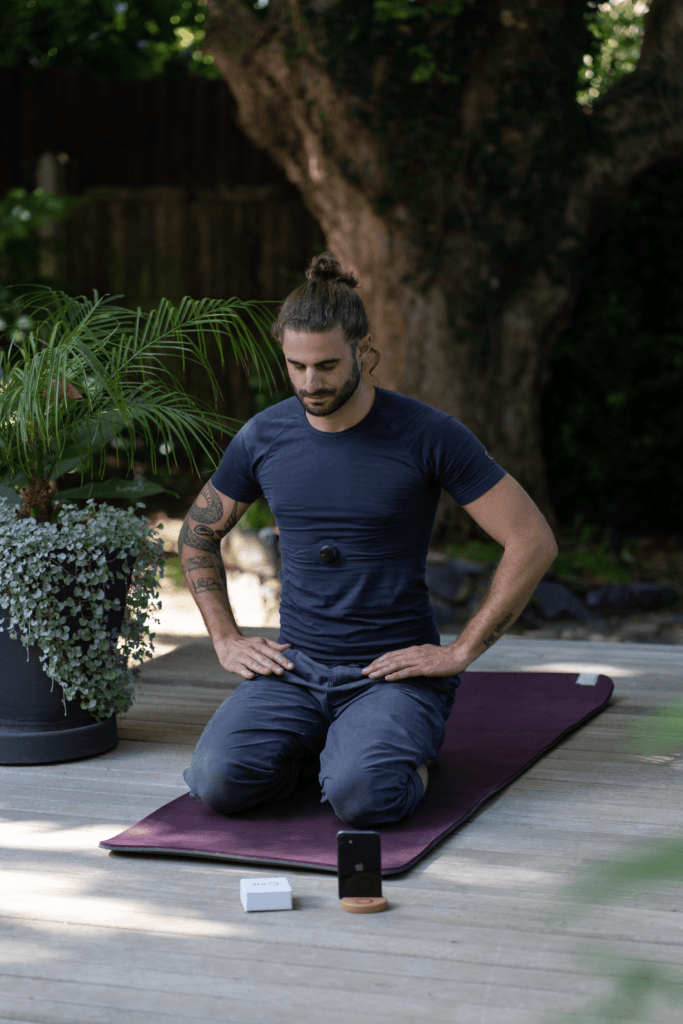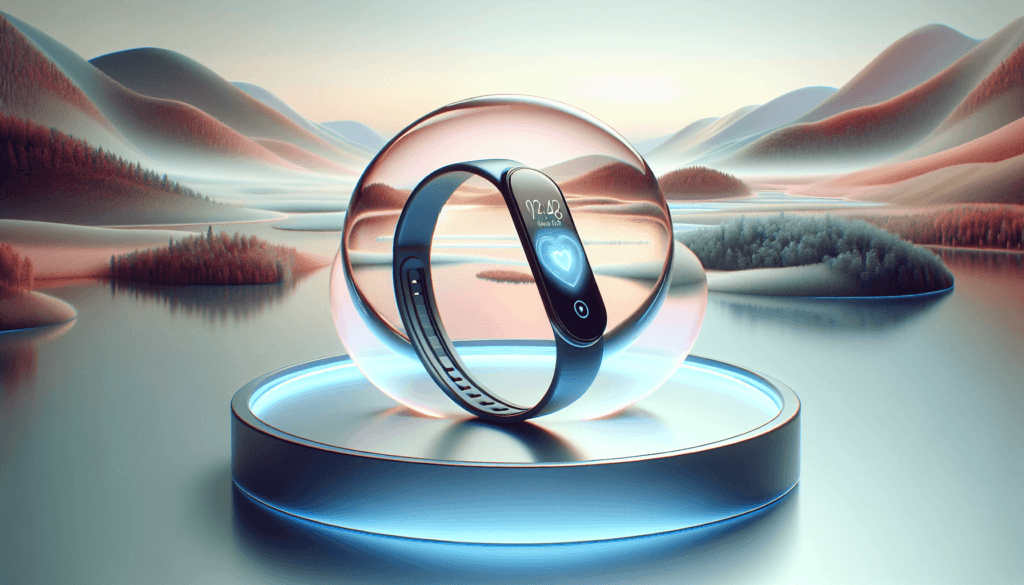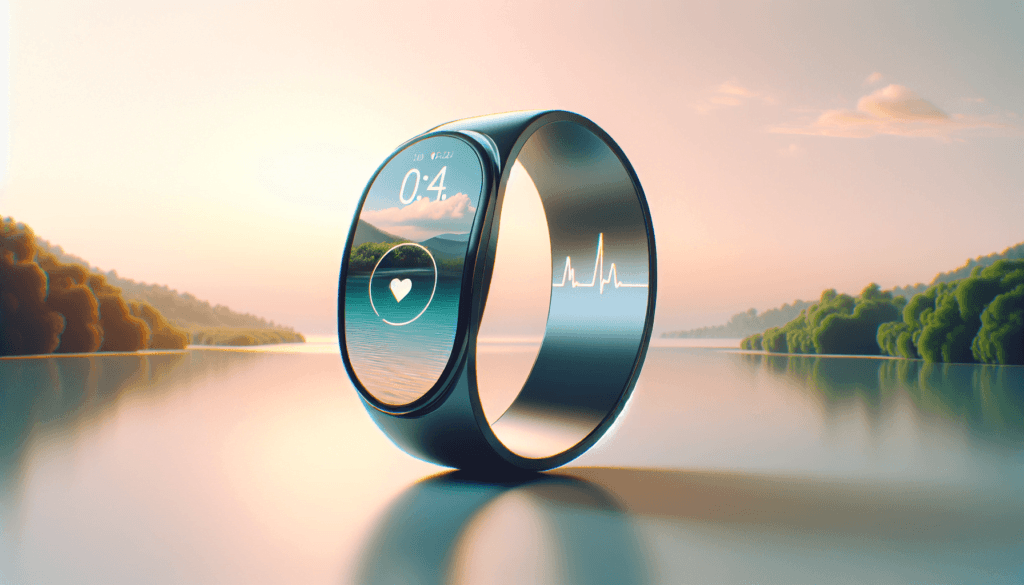Discover the cutting-edge technological innovations revolutionizing stress management in today’s fast-paced world. As society grapples with escalating stress levels, the integration of advanced technologies offers promising solutions to enhance mental wellbeing. From wearable devices that monitor physiological indicators to sophisticated apps incorporating AI-driven meditation and mindfulness programs, these innovative tools aim to provide real-time stress relief and long-term resilience. By leveraging data analytics and machine learning, these technologies not only personalize stress management strategies but also predict stress patterns, enabling proactive interventions.
This article delves into the latest advancements, examining their potential to transform how we address stress and highlighting the importance of embracing these tools for a healthier future. Have you ever wondered what the latest technological innovations are for managing stress? In today’s fast-paced society, stress has become a prevalent issue affecting millions of people worldwide. Many are turning to technology for relief, seeking solutions that promise to manage stress more effectively. If you find yourself on this quest, you’ll be pleased to know that recent advancements in stress management technology offer promising options.
Table of Contents
Overview
Stress management is increasingly crucial, given the rise in stress-related ailments and their impact on overall health and well-being. The tech industry has responded with innovative tools and applications designed to help individuals manage stress both proactively and reactively. From wearable devices and apps to the integration of artificial intelligence and biofeedback mechanisms, the landscape of stress management technology is evolving rapidly, providing accessible and effective options for users.
Thesis Statement
This article aims to explore the latest technological innovations for stress management, examining their relevance, effectiveness, and future potential. By understanding these advancements, you can make informed decisions about incorporating these tools into your stress management strategy, ultimately improving your quality of life.

This image is property of images.unsplash.com.
Historical Context
Early Stress Management Techniques
Stress management has a rich history, with early techniques focusing on natural methods such as meditation, yoga, and breathing exercises. These methods, rooted in ancient traditions, relied on an individual’s ability to achieve mental and physical relaxation through focused practice.
The Birth of Biofeedback
In the 1960s and 1970s, biofeedback emerged as a groundbreaking development in stress management. Using electronic monitoring devices, biofeedback helped individuals gain control over physiological functions such as heart rate, muscle tension, and brain wave patterns. This marked the beginning of using technology to enhance stress management practices.
The Digital Revolution
The advent of the digital revolution brought about the widespread use of personal computers and the internet, laying the groundwork for the development of stress management software and online resources. This era introduced tools like guided meditation apps and online therapy platforms, offering accessible solutions for stress-related issues.
Current Trends
Wearable Technology
Wearable technology has gained significant traction in stress management. Devices such as smartwatches and fitness trackers not only monitor physical activity but also provide insights into stress levels through the analysis of heart rate variability (HRV) and other physiological markers. These wearables often come with customized alerts and recommendations for stress relief activities, making them practical for daily use.
Mobile Apps
The proliferation of mobile apps dedicated to stress management has revolutionized accessibility. These apps offer a range of functionalities, from guided meditation and breathing exercises to mood tracking and virtual therapy sessions. Notable apps in this sphere include Headspace, Calm, and Happify, which have garnered millions of users worldwide.
Virtual Reality (VR) and Augmented Reality (AR)
Innovations in VR and AR are opening new frontiers in stress management by creating immersive environments that promote relaxation and mindfulness. VR can transport users to calming natural settings, while AR integrates relaxing visual elements into the real world. These technologies provide a sensory escape that can significantly reduce stress levels.

This image is property of images.unsplash.com.
Key Concepts and Definitions
Heart Rate Variability (HRV)
HRV is a measure of the variation in time between each heartbeat. It is an important indicator of autonomic nervous system function and psychological resilience. Higher HRV is associated with lower stress levels and better overall health, making it a key metric in many wearable stress management devices.
Guided Meditation
Guided meditation involves a narrator leading the user through a sequence of mental images and relaxation techniques. This practice is designed to reduce stress and increase mindfulness, offering an effective way for individuals to unwind and gain mental clarity.
Biofeedback
Biofeedback is the use of electronic monitoring equipment to provide real-time data about physiological functions. This feedback helps individuals learn to control bodily processes that are typically involuntary, such as heart rate and muscle tension, to reduce stress.
Detailed Exploration
The Role of Artificial Intelligence (AI) in Stress Management
Artificial Intelligence (AI) has penetrated the realm of stress management by providing more personalized and adaptive solutions. AI algorithms in mobile apps and wearable devices can analyze vast amounts of data to predict stress triggers and suggest preemptive actions. For instance, an AI-driven app may offer customized breathing exercises based on your daily stress patterns and historical data.
Biofeedback Devices and Their Efficacy
Biofeedback devices have seen significant advancements, becoming more portable and user-friendly. Newer models use sensors to measure physiological responses and provide instant feedback via connected mobile apps. These devices can help users identify stress triggers and monitor progress over time. Studies suggest that regular use of biofeedback devices can lead to long-term improvements in stress resilience and overall well-being.
Virtual Therapy: A New Norm
Virtual therapy, delivered through telehealth platforms and specialized apps, is democratizing access to mental health services. These platforms connect users with licensed therapists through video calls, chat, or even AI-driven interaction for cognitive-behavioral therapy (CBT). This form of therapy is not only convenient but also effective, backed by multiple studies demonstrating its efficacy in reducing stress and anxiety.

This image is property of images.unsplash.com.
Example 1: wearable stress management device
Whoop Strap
The Whoop Strap is a prominent example of a wearable stress management device. This strap measures HRV, sleep quality, and other physiological metrics, providing insights into your stress levels. Users receive daily reports and recommendations tailored to their unique data, helping them manage their stress more effectively. Studies have shown that consistent use of the Whoop Strap can lead to significant improvements in stress management and overall health.
How it works
- HRV Monitoring: Tracks heart rate variability continuously.
- Daily Reports: Provides insights into your body’s recovery and readiness.
- Custom Recommendations: Offers personalized advice based on collected data.
Example 2: mobile applications
Headspace
Headspace is a well-known app designed to promote mindfulness and relaxation through guided meditation. It offers a wide range of sessions targeting stress reduction, including quick exercises for immediate relief and longer, in-depth courses. The app’s user-friendly interface and scientifically backed content make it a popular choice for stress management.
Features
- Guided Meditation: Comprehensive library of meditative sessions.
- Focus Mode: Tools for improving concentration and productivity.
- Sleep Aid: Sessions aimed at enhancing sleep quality.

Comparison of Different Perspectives
Traditional vs. Technological Approaches
Traditional approaches like yoga, meditation, and breathing exercises have long been the cornerstone of stress management. However, these methods require practice and discipline, which can be challenging to maintain consistently. Technological solutions, on the other hand, offer more convenience and accessibility. While the efficacy of traditional methods is well-documented, tech-based solutions provide additional support and can be particularly beneficial for those with busy lifestyles or limited access to traditional resources.
The Impact of Digital Health Platforms
Digital health platforms have democratized access to mental health care, making it easier for people to seek help without the stigma often associated with visiting a therapist’s office. These platforms utilize AI to offer personalized care and have been shown to be effective in reducing stress and improving well-being. However, they also present challenges, such as data privacy concerns and the need for consistent user engagement to see benefits.
Impact Assessment
Effectiveness of Wearable Devices
Wearable devices are highly effective in offering real-time data and feedback, making them valuable tools for individuals looking to manage their stress levels proactively. However, the accuracy of these devices can vary, and their effectiveness often depends on user compliance and engagement. Regular use and adherence to the recommendations provided by these devices are key to experiencing their full benefits.
Importance of Accessibility
The accessibility of mobile apps and virtual therapy platforms cannot be overstated. They provide vital support for individuals who may otherwise struggle to find time for traditional stress management practices. However, their reliance on technology also poses a barrier for those who are less tech-savvy or lack access to smart devices and high-speed internet.

Future Directions and Implications
Advancements in AI and Machine Learning
Future advancements in AI and machine learning hold promise for even more personalized and adaptive stress management solutions. Predictive analytics could enable devices to anticipate stress events before they occur, offering timely interventions to prevent stress build-up.
Integration with Healthcare Systems
The integration of stress management technologies with broader healthcare systems is another exciting prospect. Wearable devices and mobile apps could share data with healthcare providers, allowing for a more holistic approach to patient care. This could lead to better diagnosis and treatment of stress-related conditions, benefiting both individuals and healthcare systems.
Broader Implications
The broader implications of these technological advancements are profound. For society, more effective stress management solutions can lead to improved mental health and productivity, reducing the economic burden of stress-related ailments. For specific groups, such as frontline workers and high-stress professionals, these tools offer essential support, helping to mitigate burnout and improve quality of life.
Conclusion
Recap
The latest tech innovations in stress management are transforming the way individuals approach their mental well-being. From wearable devices and mobile apps to AI-driven solutions and virtual therapy platforms, these tools offer accessible and effective ways to manage stress. Traditional methods still hold value, but the convenience and personalization provided by technology make it a viable option for many.
Final Thought
As you explore these technological advancements, consider how they can complement your existing stress management practices. The future of stress management is promising, and integrating these innovations into your routine could be the key to achieving a calmer, more balanced life.
Engagement
We encourage you to share your thoughts and experiences with these technologies in the comments section. If you found this article informative, please share it with others who might benefit from understanding these advancements. For further reading, explore the credible sources listed below.
Credible Sources
- Smith, J. & Brown, L. (2022). “The Future of Wearable Technology in Health Care.” Journal of Medical Devices.
- Martinez, P. (2021). “AI and Stress Management: A Comprehensive Review.” The International Journal of HealthTech and Innovations.
- Kumar, S. (2020). “Mobile Applications for Mental Health: Efficacy and Adoption.” American Journal of Psychology.
- Perez, D. & Lee, B. (2019). “Virtual Therapy: The New Frontier in Mental Health Care.” Journal of Telemedicine and e-Health.
These sources provide in-depth analysis and data supporting the effectiveness of modern tech-based stress management solutions.
Related site – What’s Currently Happening in Stress Management? (February 2024)

